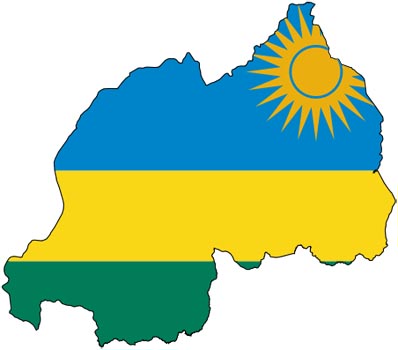From Gacaca to Arusha: Justice for Rwandan genocide is slow
 Kigali - It is a process that spans several continents, costs hundreds of millions of dollars and unfolds across several legal systems - prosecuting those responsible for Rwanda's genocide.
Kigali - It is a process that spans several continents, costs hundreds of millions of dollars and unfolds across several legal systems - prosecuting those responsible for Rwanda's genocide.
In 1994 the world stood aside as ethnic violence ripped through the small East African country.
At the end of the genocide, as many as 800,000 people were dead, a country was destroyed and tens of thousands of the killers had fled to safe havens across the globe in an attempt to escape justice and retribution.
In the aftermath of the genocide, the international community pledged its support to Rwanda's recovery and to ensuring that genocide would not happen again.
For the past fifteen years, Rwandan and international authorities have pursued the fugitives they deem responsible for organizing, supporting and carrying out the killings.
Arrests have been made and trials have been launched on three continents - from Switzerland and the Netherlands to Belgium, Canada and Tanzania.
In the months following the end of the violence, the Rwandan judicial system was in a state of near-collapse, overwhelmed by the sheer volume of over a million potential cases.
To alleviate the pressure, the United Nations Security Council voted to launch the International Criminal Tribunal for Rwanda (ICTR) in Arusha, Tanzania to try those suspected of leading the killing - the first time a world body formally tackled bringing justice to the perpetrators of a genocide.
Despite initially welcoming the tribunal, Rwanda's new government soon came to oppose the terms of its creation, concerned that they would lose control of the process and arguing that the tribunal was doomed to inefficiency.
The initial target set by the UN was to prosecute as many as 700 senior leaders of the genocide - a number that has since been significantly reduced.
An emphasis was placed on ensuring that every person charged was given a fair trial.
For the process to succeed, the UN argued, it had to be fair and transparent. Only a completely indisputable decision could render effective justice and contribute to Rwanda's process of reconciliation.
But the ICTR soon came under criticism for its slow pace. Ten years after the court was launched, the tribunal had only delivered 21 decisions.
As it approaches its 15th anniversary, the court has completed 29 cases. 23 more are currently in session, eight suspects are in custody awaiting trial and 13 suspects who have been charged remain at large.
Despite its glacial conviction rate, the tribunal has had its successes.
In December, Theoneste Bagosora, a former army colonel and one of the most high-profile architects of the genocide was sentenced to life imprisonment for his role.
The court is scheduled to wrap up operations by the end of 2010. Several human rights organizations have called on the UN to extend the court's mandate, arguing that suspects would not receive fair trials if their cases were to be referred back to Rwanda.
Extending the UN mandate, they argue, is also the only way to ensure real justice is served.
Rwanda has been criticized for failing to follow up allegations of war crimes against people close to the current government, including members of the Rwandan Patriotic Front (RPA), the former rebel army that now makes up much of the Rwandan military command.
In 2007, Amnesty International voiced concern about the issue.
"For any justice system to operate effectively, it must be impartial," the group wrote. "[We remain] deeply concerned that, to date, crimes committed by members of the [RPA] during 1994 have not been adequately investigated and prosecuted by national authorities."
Until these concerns are addressed, they argue, the ICTR must continue to operate.
In Rwanda, suspects accused of participating in the genocide on a local basis are being tried in an equally controversial manner.
In 2005, after a testing period of several years, the government embraced Gacaca, a traditional form of justice where citizens are appointed as judges and those suspected of involvement in the genocide are required to face their communities in public hearings.
Defendants are judged by their communities in a binding process.
Victims are often awarded compensation while those found guilty can face lengthy jail sentences.
According to a 2008 report compiled by the US state department, there are over 12,100 Gacaca courts operating in Rwanda.
Several human rights groups have voiced concerns about the legal process, arguing that it lacks the dispassionate nature of regular court and denies defendants the opportunity to a professional defense.
New York based Human Rights Watch argued last year that "instances of faulty procedure, judicial corruption, and false accusations undermine trust in Gacaca jurisdictions among victims as well as the accused." (dpa)